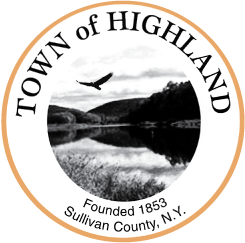© Catskills Photography Charlie Hoffman
Supervisor & Deputy
Supervisor
John Pizzolato
(845) 557-8901
email »
The Town Supervisor fills a significant and unusual role. He/she serves in several major capacities:
Presiding Officer (Chairperson): The Supervisor is the presiding officer at meetings of the Town Board by virtue of Section 63 of the Town Law.
Town Legislator (Town Board Member): The Supervisor is not only the presiding officer of the Board, but votes like all other members (Town Law, Section 63).
Town Executive and Administrator: After Town Board decisions have been made; it is the Supervisor who often carries out the decisions. The Supervisor usually receives the majority of complaints and suggestions of citizens as well.
Town Representative (County Board Member): One unusual feature of the office of Supervisor is the fact that it may be a county, as well as Town post.
Town Fiscal Officer: The Supervisor is the treasurer of the town and generally represents the town in the conduct of its financial affairs.
This information was provided by the Office of the New York State Comptroller. Publication date: December 2005.
Deputy Supervisor
Glenn Pontier
The Town Deputy Supervisor capacities:
Deputy Supervisor A town board may decide to establish the office of deputy supervisor. If it does, that official is appointed by the supervisor, or by the town board if the supervisor fails to do so within five days after the establishment of the office or within five days after a vacancy occurs in the office.
Any person, including a town officer, official or employee, may be appointed deputy supervisor, provided that the person appointed shall possess the same qualifications as an elective town officer.
The town board fixes the compensation paid to the deputy supervisor. If a town officer, official or employee is appointed deputy supervisor, that person may receive extra pay. The deputy supervisor does not sit on the county board and has no vote on the town board unless the deputy is also a town board member and entitled to a vote by virtue of that office (Town Law, Section 42).
Town Board
The legislative authority of the town rests in the Town Board, which is the governing board of the Town. The law requires certain budget and organizational meetings (Town Law, Section 62, 106, 109). Beyond that, the Board is generally free to establish, by resolution, a time, date, and place for regular meetings (Town Law, Section 62, Public Officers Law, Article 7).
The Town Board, among other functions, generally fills vacancies in town offices, elective or appointive; may select a town attorney and a town engineer; appoints constables or police officers; and provides for the hiring of such other employees as necessary for the conduct of the town’s business (Town Law, Sections 20, 64). Certain highway employees are hired by the Highway Superintendent, but within appropriations authorized by the Town Board (Highway Law, Section 140(4)).
Among many other things, the Town Board adopts a budget, fixes the salaries of officers and employees, establishes rules of its procedure and designates the official newspaper of the town. The functions are so numerous that only a sample can be given here.
Although most of the functions of the Town Board are set forth in the Town Law, there are others set down in other statutes, such as the General Municipal Law, the Highway Law, the Education Law, the Agricultural and Markets Law and the Not-for-Profit Corporation Law. In addition, Town Boards may adopt Local Laws pursuant to the Home Rule powers granted in Article 9 of the State Constitution and the Municipal Home Rule Law.
